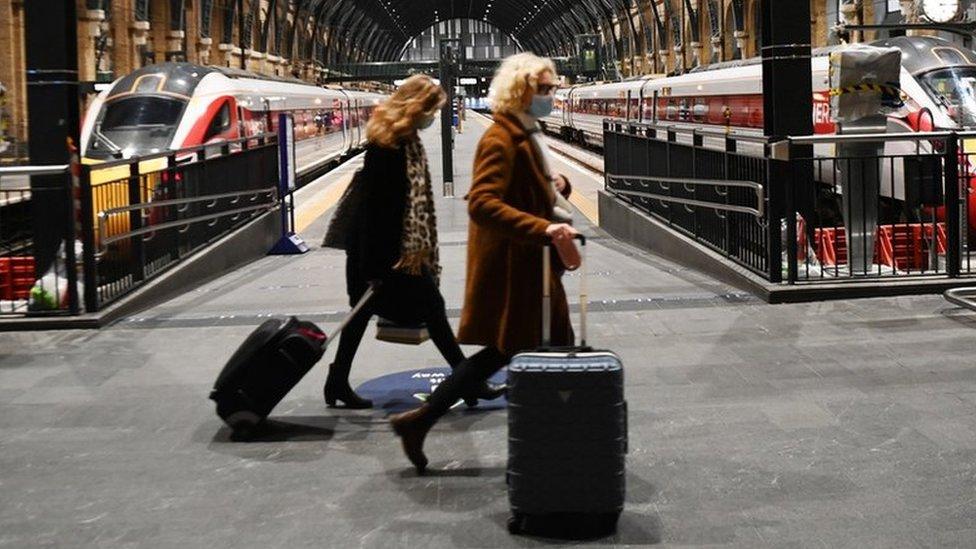Covid: Passengers stranded as countries ban UK travel
- Published
Only freight traffic is being allowed to cross the Irish Sea from Wales
Passengers have been left stranded attempting to get in and out of Wales after several countries banned most UK travel over a new coronavirus variant.
Bukola Sokunbi-Walton, from Galway, was travelling from London to spend Christmas with her children when her ferry from Holyhead was cancelled.
Meanwhile, another man has been unable to return to mid Wales from the Liberian capital Monrovia.
Prime Minister Boris Johnson chaired an emergency meeting on Monday.
After it finished, the Welsh Government said: "On the impact of the travel bans imposed by European partners, the first minister updated the meeting on the current situation at Welsh ports.
"While traffic management plans are not needed at this point, the first minister made clear that arrangements with the Irish Republic were very important in sustaining that position."
Meanwhile, Toyota said it would close its engine factory in Deeside, Flintshire, two days earlier than planned for Christmas.
It will now shut on Tuesday with bosses anticipating parts shortages because of disruption caused at ports.
European Union member states are due to meet in Brussels to discuss a co-ordinated response to the new coronavirus variant in the UK.
The Republic of Ireland, the Netherlands, Germany, Italy, France and Canada, have all suspended flights from the UK.
'It's a really tough time'
Stena Line and Irish Ferries, which run routes from Wales to Ireland, have both banned passengers on Monday and Tuesday due to the Irish government's ban, with only freight and essential workers allowed to cross.
Ms Sokunbi-Walton said she only found out about the ban when she arrived at Holyhead ferry terminal on Monday morning and said she was "utterly gutted" that she cannot get home for at least two days.
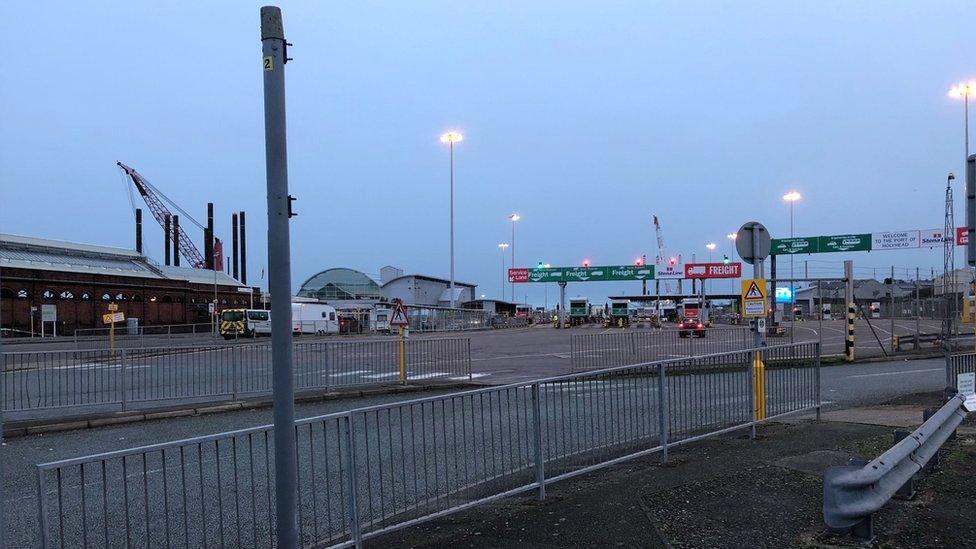
Ferries have been running from Holyhead on Monday morning - but for freight and essential workers only
She said: "I just expected to get on the ferry as usual and go home because I have three children at home waiting for me, but it's very upsetting and disappointing that I can't do that right now.
"They [the Irish government] should have given us ample time to prepare for that, at least given us information so that we would know what to do. If we had found out earlier we wouldn't have driven all the way [from London] - we would've waited for the 48 hours before coming here.
"It's very tiring. We don't have any accommodation here, we're sitting out in the car, it's cold… it's really a tough time."
Stuck in Liberia
While Ms Sokunbi-Walton is trying to leave Wales, others are struggling to get back as a result of the new restrictions.
Les Banks Irvine, who lives in Monrovia, Liberia, was trying to get back to mid Wales where his two children and three grandchildren live.
But he said he was told he could not board his flight to Belgium, as his connecting flight was taking him to the UK.
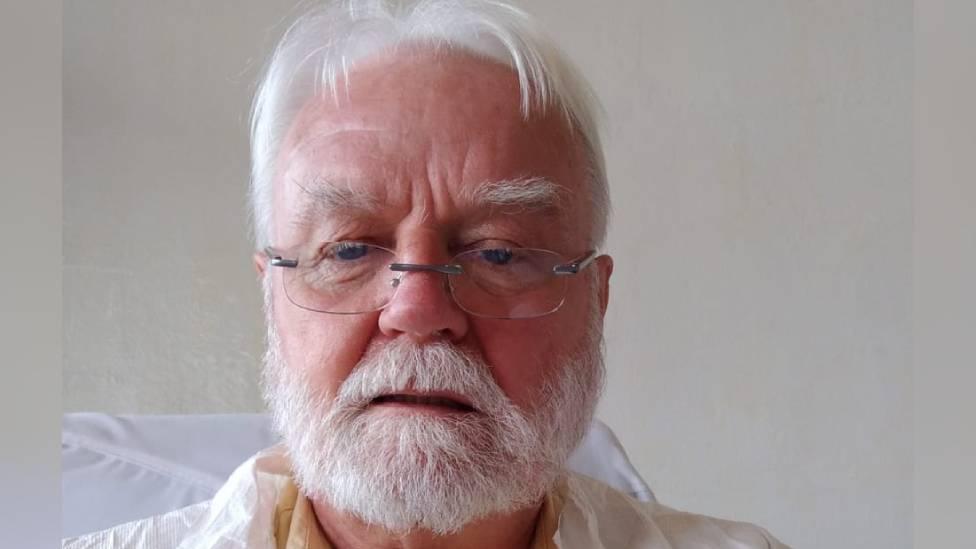
Les Banks Irvine has been unable to return to Wales to see his family
He said: "There's a great deal of not-knowing. I'm sure it is for everybody.
"I was hoping to be spending some time with my two children and three grandchildren in mid Wales, but it now looks like I am stranded here in Monrovia.
"I'm working for a company who bottle Coca-Cola. I've been here for about nine months this year. I last saw my family at the end of August."
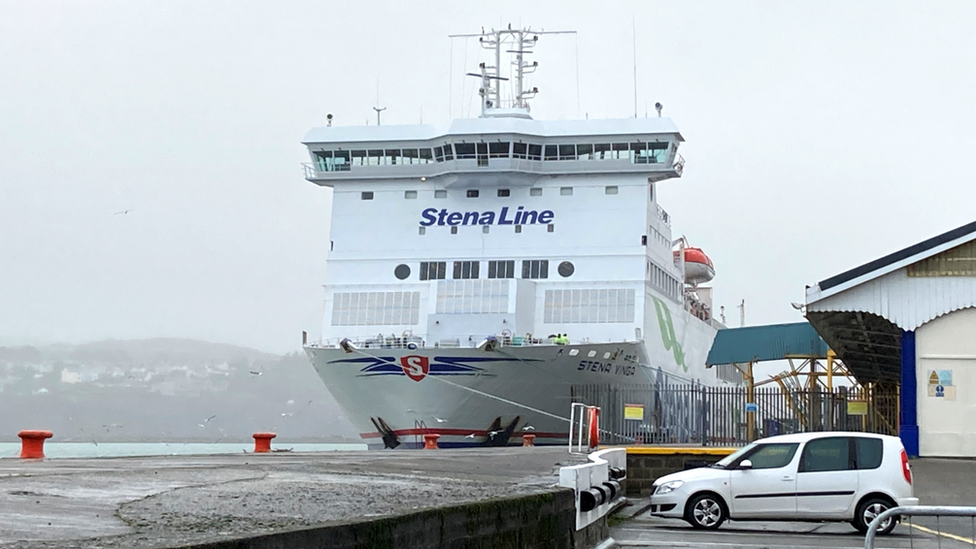
Stena Vinga arrived at Fishguard on Monday morning
Irish Ferries, which has passenger routes between Holyhead and Dublin, and Pembroke Dock and Rosslare, said essential travel "is permitted", but travellers are "advised to keep all necessary stops to a minimum and minimise contact with people as much as possible".
Stena Line has imposed similar rules on its crossings between Holyhead and Dublin, as well as Fishguard to Rosslare.
A spokesman said that the company had managed to contact almost all passengers since the travel restrictions were imposed, meaning very few had turned up at the ports.
"The ferries are still operating and freight isn't affected by the restrictions. We're in close contact with any affected passengers," he said.
The Irish government said: "Arrangements are being put in place to facilitate the repatriation of Irish residents on short trips to Great Britain and planning to return in the coming days, as well as international travellers to Ireland who are transiting through Great Britain."
- Published20 December 2020
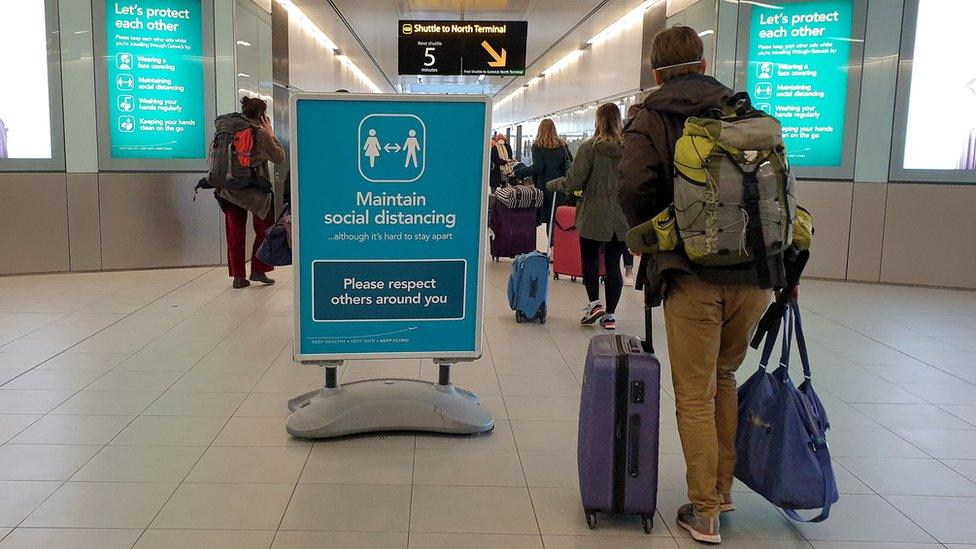
- Published11 December 2020
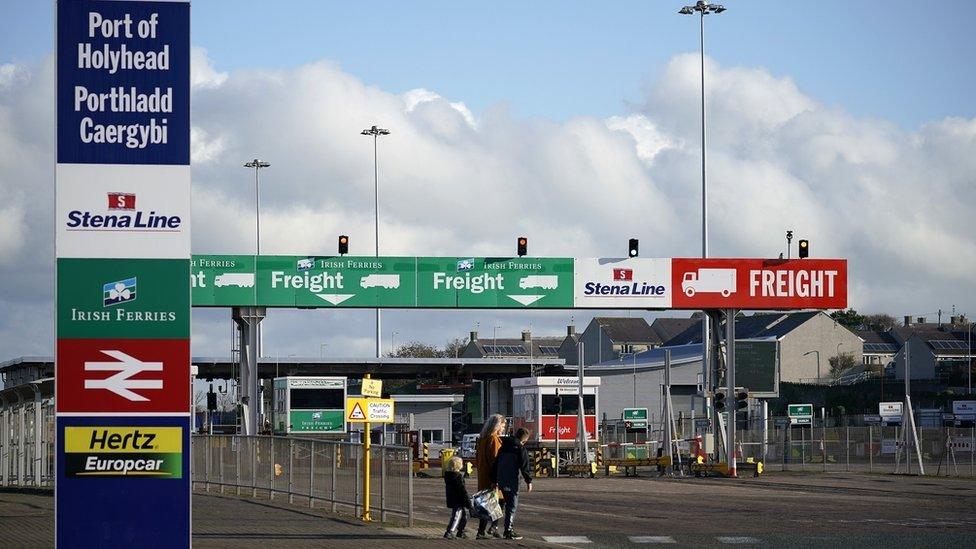
- Published21 December 2020
